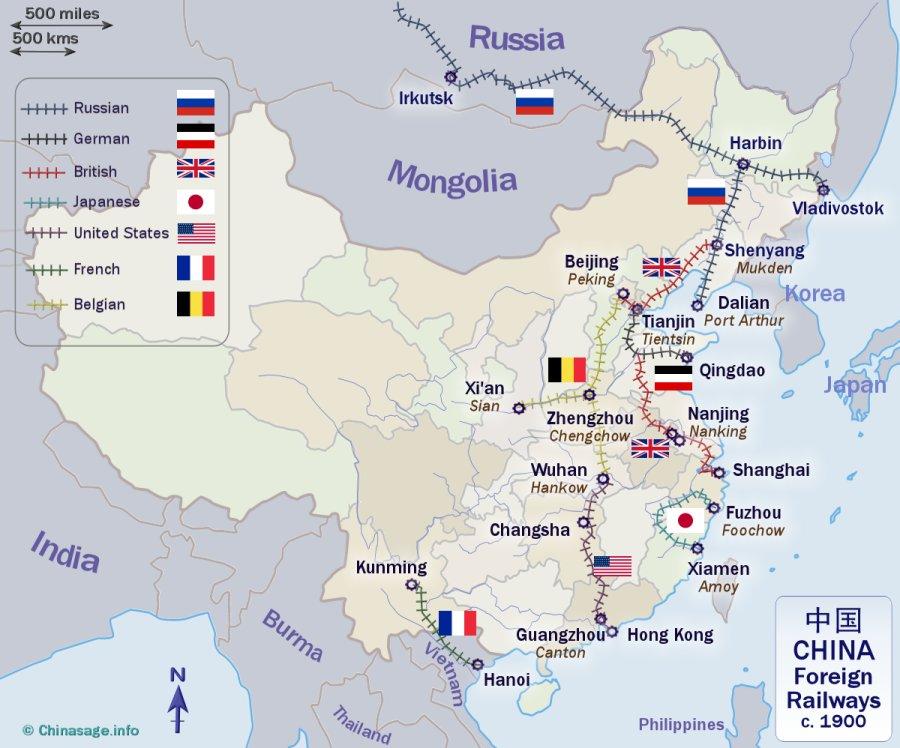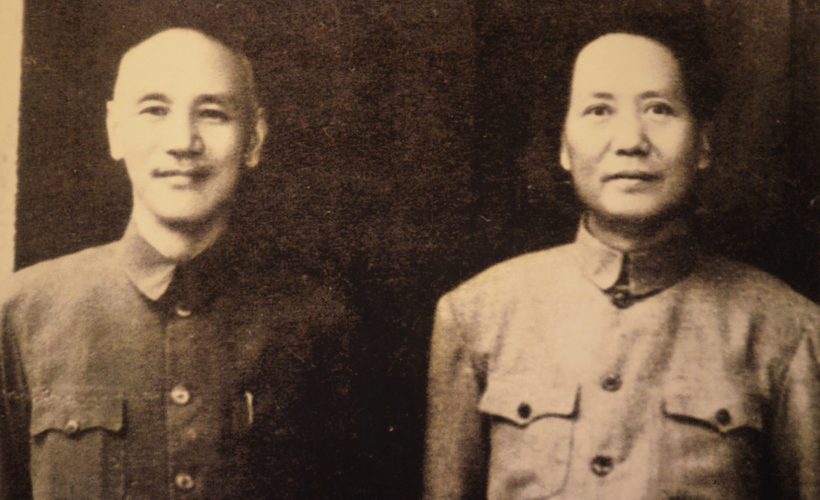
Timeline
1894 First Sino-Japanese War.
1911 Chinese Revolution, the Qing dynasty falls.
1912 The Guomindang was set up by Sun Yixuan.
1924 The First United Front was set up.
Long-term
The Manchu dynasty fell in 1911 leaving a power vacuum behind. The new leaders faced the same problems: the relationship with the west, the unequal treaties and ‘extraterritoriality’ resulting from the Opium Wars. One of the triggers of the revolution was the issue of foreign control of the railways. A new deal was being negotiated with Britain, the US, France, and Germany where they would control thousands of miles between them. The news of this angered many across China and led to the fall of the Manchu.
Yuan Shikai
- Former Qing dynasty general
- Improved China’s military strength after their defeat in war to Japan 1894-95.
- He became the first president of China in 1912.
- He consolidated his power rather than allow democracy, later re-establishing the post of emperor. This is the strong man argument that follows a revolution.
- Appeased Japan with Twenty-One Demands, largely due to finance.
- Growing unpopularity forced the end of his role as a monarch.
Sun Yixian
- Chairman of the Guomindang.
- Three principles of nationalism, democracy and people’s wellbeing, set out in 1912.
- Rival of Yuan Shikai.
- Founding chairman of the Guomindang
- Helped organise the First United Front, 1922.
- Appointed Jiang Jieshi as president, who took over as chairman after Sun’s death in 1925.
Rise of Warlords
- The fall of Yuan Shikai led to further instability in the country. Powerful warlords from the Qing Army became provincial leaders, ignoring any centralised control.
- The western countries made their own arrangements with these warlords, obtaining special privileges to secure their sphere of influence in the region.
- Some ruled fairly but others very harsh, often leading to wars between tribes or provinces.
The Rise of Nationalism
Several events led to the increase in Chinese nationalism.
- Japan defeated China in the First Sino-Japanese War of 1894-95 and gained influence or control over Korea, Manchuria, Taiwan and the Liaodong Peninsula, as well as being forced to pay compensation.
- Chinese nationalism led to the Boxer Rebellion but this was defeated by the foreign powers, which only increased the national dislike of them.
- China helped the Allies in the First World War and expected to be rewarded for its efforts at the Paris Peace Conferences. They also expected Wilson’s Fourteen Points to be adhered to, especially ‘self-determination’. Instead, they were forced to agree to the Twenty-One Demands in 1915 and received little from the Allies (see Treaty of Versailles).
- Sun Yixian’s Three Principles, especially the self-determination for China. He set up the Guomindang (GMD) in 1912.
The Rise of Communism
Ideology of the Chinese Communist Party
Three Principles of the People
- Some Chinese people saw the humiliation of the Treaty of Versailles as a reason not to follow any western models. Communism, or Russia’s Marxism-Leninism, was seen as a viable alternative.
Economy
- The Chinese population grew quickly at the turn of the century but the production of resources did not keep pace.
- The Treaty of Versailles gave Japan
Short-term
- The First United Front was set up to fight the warlords and unite the country. As the USSR supported the GMD, Sun Yixian agreed to the alliance with the Chinese Communist Party (CCP). But after Sun died, Jiang Jieshi took over and the GMD’s northern expedition was successful, the alliance became a hindrance. Both sides had competing ideologies and Jiang decided that the CCP was no longer needed. In 1927, the GMD attacked the Communists in Wuhan, killing 15 000 or the 25 000 in the city.
- Shanghai Massacres
- The GMD continued to have internal power struggles during the ‘Nanjing Decade’. Jiang faced opposition and even coups against his leadership. As a result, the GMD’s war against the CCP was not as effective as it could have been.
Thesis Statements
- Once China was more or less united, Jiang Jieshi had no need of the alliance with the CCP. The consequent CCP actions such as the Shanghai Massacre led to two decades of internal conflict.
- The power vacuum emanating from the 1911 revolution led to the Chinese Civil War.

